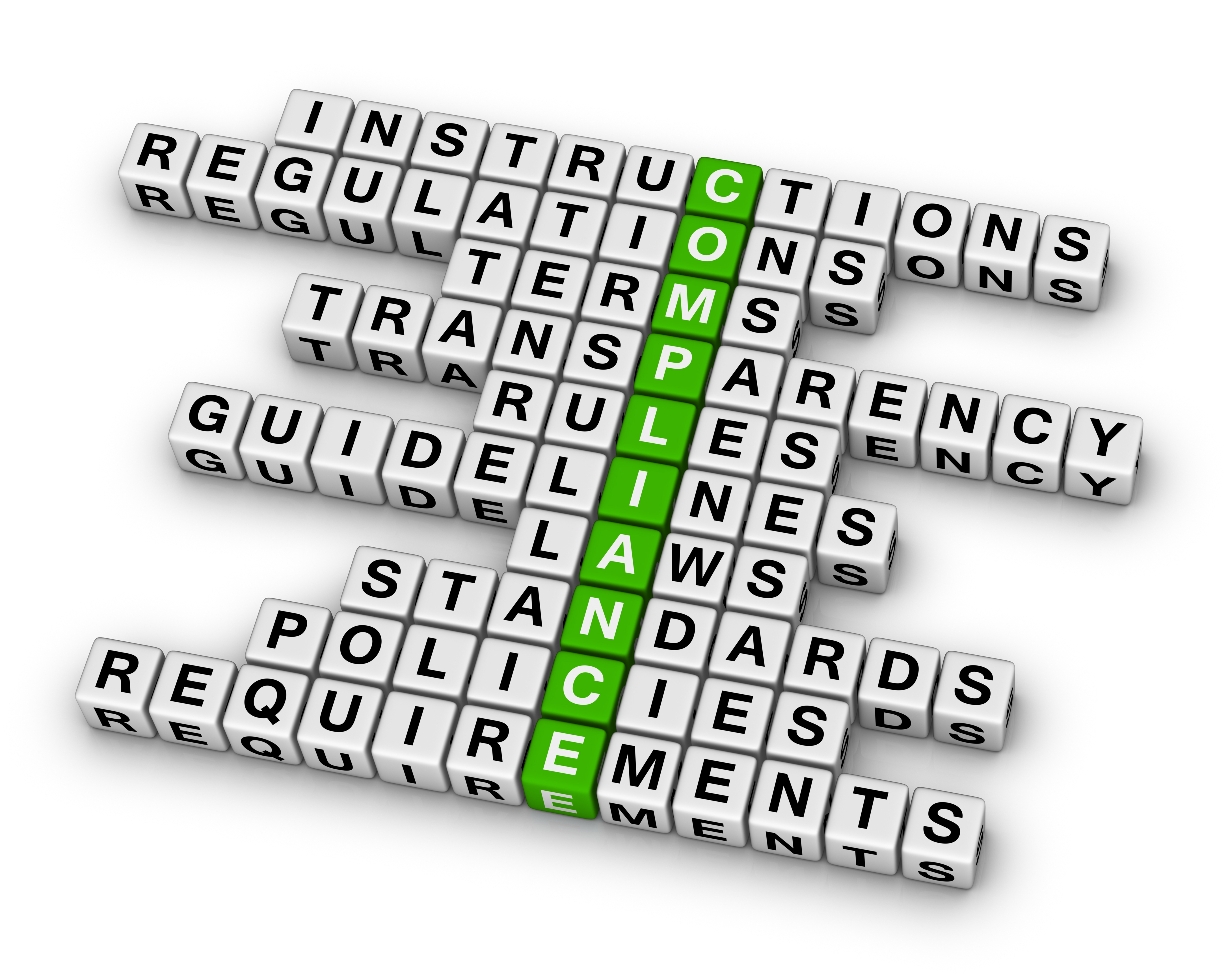Compliance is crucial to any business, ensuring that organizations adhere to legal and regulatory requirements. It encompasses the set of rules and guidelines that businesses must follow to maintain their operations in a lawful manner.
Corporate Compliance plays a significant role in various industries, such as finance, healthcare, and manufacturing, where non-compliance can result in severe consequences for the business and its stakeholders.
Businesses must comply with a wide range of regulations imposed by government bodies at local, national, and international levels. These regulations encompass financial reporting standards, data protection laws, environmental regulations, labor laws, and consumer protection measures.
The purpose of compliance is to promote ethical behavior within organizations while mitigating risks associated with non-compliance. By adhering to these regulations, businesses ensure transparency in their operations and protect themselves from legal repercussions and reputational damage.
In summary, compliance refers to businesses‘ adherence to legal and regulatory requirements governing their industries. It acts as an essential framework for maintaining ethical practices within organizations while minimizing risks associated with non-compliance.
In the following sections of this article, we will delve deeper into the meaning and significance of compliance for businesses across different sectors.

What is compliance, and how can you effectively implement it in your business?
Compliance refers to the adherence to laws, regulations, and ethical standards to ensure that a business operates within the boundaries of legal and ethical requirements.
Implementing effective compliance measures involves creating a comprehensive framework encompassing policies, procedures, training programs, monitoring systems, and regular audits. Corporate Compliance requirements vary depending on the industry and jurisdiction in which a business operates.
Companies must stay up-to-date with regulatory compliance changes and ensure their business operations align with these requirements and compliance regulations.
To effectively implement compliance in a business, it is essential to establish internal policies that outline the company’s commitment to following laws and regulations. These policies should be communicated clearly to all employees at various organizational levels.
Additionally, organizations can utilize compliance tools such as compliance management software to streamline processes and monitor adherence to regulations. This software can help automate tasks related to compliance efforts, track employee training completion, manage documentation, and generate reports for audits or regulatory inspections.
Training programs are another important aspect of implementing effective compliance measures. Employees should receive regular training on relevant laws, regulations, and ethical standards applicable to their organizational roles.
These programs can help raise awareness about potential risks or violations while guiding how employees can navigate complex regulatory landscapes.
Furthermore, monitoring systems are crucial in ensuring ongoing compliance within an organization. Regular audits should be conducted internally or by external parties to assess whether the implemented compliance measures are effective.
Monitoring systems also enable proactive identification of deviations from established policies or procedures so they can be addressed promptly.
Implementing effective compliance measures involves creating a comprehensive framework that includes internal policies, training programs, monitoring systems, and regular audits.
Through adhering to legal and ethical requirements through robust compliance efforts, businesses minimize risks associated with non-compliance while promoting transparency and trust among stakeholders.
Utilizing tools like compliance management software further enhances efficiency in managing various organizational compliance requirements. Thus the ongoing process ensures business compliance. Enabling business partners and senior management to adhere to compliance policy and mandatory guidelines.
What does compliance mean for your business?
Conforming to regulatory requirements is essential for businesses as it ensures adherence to legal standards and mitigates the risk of penalties or legal consequences. Compliance means that a business must meet specific compliance requirements and regulations set forth by governing bodies, such as industry regulators or government agencies.
Failure to maintain compliance can result in severe financial penalties, reputational damage, and even criminal charges. Therefore, businesses must prioritize compliance to protect their interests and maintain trust with customers and stakeholders.
Compliance generally implies compliance with rules. To run legally, your enterprise must meet the requirements of specific laws governing your business, ethics, and rules. Zoho has GDPR-compliant policies that allow it to protect customers’ privacy.
Zoho complies globally with the GDPR standards. Your company must comply with regulations and have all necessary documents supporting your claim. Taking care of your responsibilities can be very helpful.
To effectively achieve compliance, organizations often designate a compliance officer responsible for overseeing all compliance activities within the company. The compliance officer is tasked with developing and implementing comprehensive compliance policies that align with relevant regulations.
These policies outline the procedures employees must follow to ensure adherence to regulatory requirements. Regular compliance audits are conducted internally or externally to assess whether the organization meets these standards.
Compliance means more than just following rules; it encompasses creating an organization’s ethical behavior culture. Businesses demonstrate their commitment to integrity and transparency by implementing strict compliance measures.
Compliance also involves staying up-to-date with evolving regulations and adapting policies accordingly. It requires continuous monitoring of internal processes, employee training programs, and risk management strategies.
Ultimately, maintaining compliance builds trust among customers, investors, and other stakeholders while safeguarding the reputation and long-term success of the business.
Why Does Compliance Matter?
Adhering to regulatory requirements is crucial for businesses as it ensures adherence to legal standards, mitigates the risk of penalties or legal consequences, and fosters a culture of ethical behavior within the organization.
Compliance with legal requirements is necessary to avoid potential fines or lawsuits arising from non-compliance. Organizations can effectively navigate complex laws and regulations by having a dedicated compliance department or professionals.
Compliance professionals are vital in ensuring that businesses meet their compliance obligations. They are responsible for staying up-to-date with changes in laws and regulations, interpreting them, and implementing necessary measures to ensure compliance. These professionals work closely with various departments within an organization to identify areas of non-compliance and develop strategies to mitigate risk.
Failure to comply with legal requirements can have severe consequences for businesses. It can result in financial penalties, reputational damage, loss of business opportunities, and even criminal charges in some cases.
Compliance not only helps organizations avoid these negative outcomes but also builds trust among stakeholders such as customers, shareholders, and employees. When companies demonstrate a commitment to ethical behavior through compliance efforts, they foster a culture of integrity within their organization.
Compliance plays a crucial role in maintaining the legality and ethicality of businesses’ operations. Adhering to legal requirements helps organizations mitigate risks associated with penalties or legal consequences while fostering an environment of ethical behavior.
Compliance professionals and departments are essential in ensuring that organizations understand and meet their compliance obligations effectively. By prioritizing compliance efforts, businesses uphold their reputation and build trust among stakeholders while avoiding potential negative impacts resulting from non-compliance.

What Is Compliance in Business?
Compliance is the requirement that businesses have the necessary procedures for complying with the requirements. A firm’s records must include detailed documentation of procedures and audit trails relevant to its clients.
Conformance is built upon good governance defined by rules and regulations and administered by senior managers. Corporate governance is essentially how businesses make decisions. To be accountable and tolerant to stakeholders, a business has to examine its laws to ensure fair and transparent operations.
Ensuring adherence to legal and regulatory requirements is essential for businesses to maintain ethical operations and avoid potential penalties or legal consequences. Compliance in business refers to following these compliance requirements established by various governmental bodies and industry-specific regulations.
It involves implementing policies and procedures that align with the applicable laws and standards, as well as monitoring and managing any potential risks that may arise.
One key aspect of business compliance is the role of a chief compliance officer (CCO). This individual oversees an organization’s compliance program, ensuring it meets all requirements.
The CCO plays a crucial role in developing corporate policies and procedures, conducting regular audits, training employees on compliance standards, and addressing non-compliance issues. Businesses can effectively manage their compliance efforts by having a dedicated CCO while minimizing the risk of violations.
Compliance officers are another important component of business compliance. These individuals work closely with the CCO to ensure all employees understand their obligations regarding regulatory requirements. They guide how to adhere to internal policies and external regulations while carrying out their day-to-day tasks.
Compliance officers also assist in identifying potential risks within the organization and develop strategies for mitigating them. Their presence helps foster a culture of integrity within the company, where employees know their responsibilities towards maintaining compliance standards.
Business compliance encompasses adhering to legal and regulatory requirements by implementing appropriate policies, procedures, and risk management strategies. A chief compliance officer ensures effective oversight of an organization’s compliance program while guiding corporate policies.
Compliance officers further support this effort by assisting employees in understanding their obligations and identifying areas where non-compliance may occur. By prioritizing business compliance, companies can uphold ethical practices while safeguarding against penalties or legal consequences associated with non-compliance.
Regulatory compliance examples
Regulatory compliance is exemplified in various industries, demonstrating the importance of following legal and regulatory requirements to maintain ethical practices and avoid potential penalties.
In today’s complex business environment, companies must adhere to many compliance requirements to ensure they operate within the boundaries set by applicable laws and regulations.
One notable example is the Foreign Corrupt Practices Act (FCPA), which prohibits bribery of foreign officials by U.S. companies. Compliance with this act is crucial for international businesses, as it ensures fair competition and promotes transparency.
Another important aspect of regulatory compliance is data privacy laws. With the increasing reliance on technology and digital platforms, protecting personally identifiable information has become paramount.
Organizations that handle sensitive customer data must comply with regulations such as the Health Insurance Portability and Accountability Act (HIPAA) in the healthcare industry or the European Union’s General Data Protection Regulation (GDPR). Non-compliance can result in severe financial penalties and reputational damage, highlighting the significance of adhering to these laws.
Furthermore, regulatory compliance extends beyond specific industries into general business practices. For instance, companies must maintain accurate financial records and adhere to accounting standards like Generally Accepted Accounting Principles (GAAP).
By complying with these rules, organizations ensure transparency in their financial reporting and provide reliable information to stakeholders. Failure to meet these standards can lead to legal consequences or loss of investor trust.
Regulatory compliance examples span various industries and emphasize the importance of following legal requirements. The Foreign Corrupt Practices Act highlights fair competition practices in international markets while data privacy laws protect personally identifiable information from misuse. Additionally, general business practices such as maintaining accurate financial records demonstrate adherence to accounting standards.
By understanding these examples and implementing appropriate measures, businesses can uphold ethical practices while avoiding potential penalties associated with non-compliance.
As the need for compliance with regulations has increased in recent years, the industry has refocused increasingly on consulting software and IT compliance services. Many companies even created compliance roles, including Chief Compliance Officers (CCOs).
CCOs are responsible for monitoring compliance risks and conducting an audit. The exact nature of compliance checks can vary by varying factors, like the industry or the nature of the data they collect and process.
Frequently Asked Questions
What are the consequences of non-compliance in business?
The consequences of non-compliance in business can be severe, including legal penalties, reputational damage, loss of customers and partners, financial losses, decreased employee morale, and potential business closure.
How can businesses ensure ongoing compliance with changing regulations?
Businesses can ensure ongoing compliance with changing regulations by implementing effective regulatory monitoring systems, conducting regular audits and assessments, maintaining clear communication channels with regulators, and investing in continuous employee training and education.
Are there any specific industries that require more stringent compliance measures?
Industries such as healthcare, finance, and pharmaceuticals typically require more stringent compliance measures due to the sensitive nature of their operations and the potential risks. This is necessary to ensure legal and ethical practices in these sectors.
What role does technology play in facilitating compliance in business?
Technology plays a crucial role in facilitating compliance in business by automating processes, ensuring accurate record-keeping, enhancing transparency, and enabling real-time monitoring. It helps organizations comply with regulations efficiently and effectively, minimizing non-compliance risk and associated penalties.
Are there any international standards or frameworks businesses can follow to ensure compliance across different jurisdictions?
International standards and frameworks, such as the International Organization for Standardization (ISO) and the General Data Protection Regulation (GDPR), help businesses ensure compliance across different jurisdictions by providing guidelines and best practices.

Conclusion
In conclusion, compliance is a crucial aspect of business operations that ensures adherence to laws, regulations, and industry standards. Implementing effective compliance measures helps businesses mitigate risks, maintain transparency, and uphold ethical practices.
Compliance matters because it protects stakeholders’ interests, including customers, employees, and shareholders. Non-compliance can lead to legal consequences, reputational damage, and financial losses.
To achieve compliance in business, organizations must establish robust policies and procedures that align with relevant laws and regulations. This includes conducting regular risk assessments, training employees on compliance requirements, monitoring activities for violations or misconduct, and promptly addressing any issues.
Additionally, businesses must stay updated on evolving regulatory landscapes to adapt their compliance strategies accordingly.
Compliance is not limited to a specific industry but applies across various sectors such as finance, healthcare, and technology. Some examples of regulatory compliance include data protection regulations like the General Data Protection Regulation (GDPR), financial reporting standards like the International Financial Reporting Standards (IFRS), and workplace safety regulations enforced by agencies such as the Occupational Safety and Health Administration (OSHA).
By prioritizing compliance within their organizations through proactive measures and ongoing monitoring efforts, businesses can demonstrate their commitment to responsible corporate conduct while safeguarding their reputation and ensuring long-term success. Effective compliance practices ultimately build trust with stakeholders and foster a culture of integrity within the business environment.

Chris Ekai is a Risk Management expert with over 10 years of experience in the field. He has a Master’s(MSc) degree in Risk Management from University of Portsmouth and is a CPA and Finance professional. He currently works as a Content Manager at Risk Publishing, writing about Enterprise Risk Management, Business Continuity Management and Project Management.

